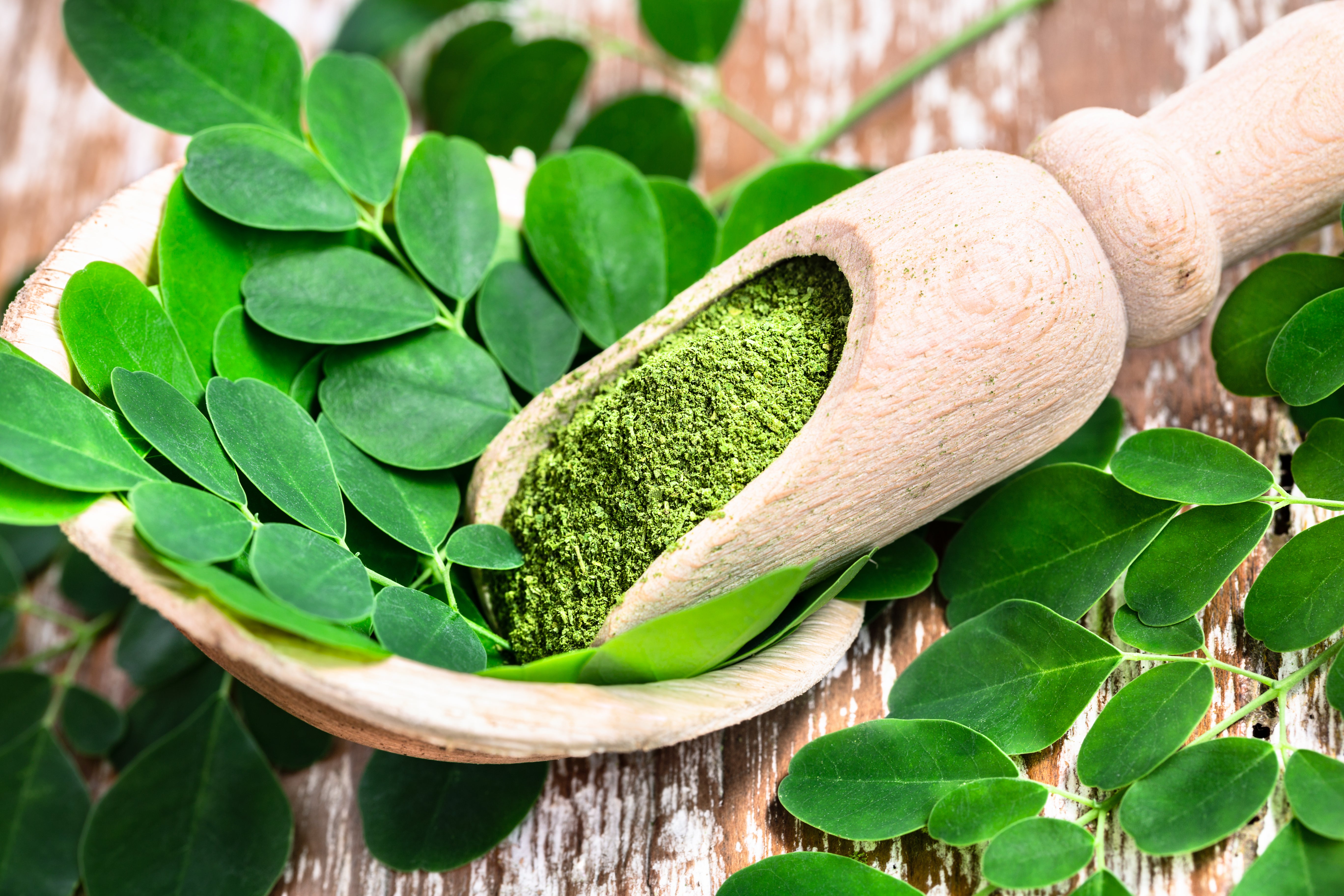
Moringa: properties, what it is used for + recipe
What is moringa? What are its properties? How to take advantage of its benefits?
The moringa tree (moringa oleífera), also called the Tree of Life, is native to India, and has traditionally been used for food and medical purposes since ancient times.
An important source of essential nutrients, moringa leaves are extremely high in vitamins and minerals and have numerous health benefits, and is a very interesting superfood to add to our modern and sometimes unbalanced diets.
Read on if you want to know more about moringa health benefits!
BENEFITS OF MORINGA, ONE OF THE MOST POTENT SUPERFOODS
Relatively unknown in Western countries, moringa has been used by NGOs for decades in their plans to fight malnutrition in developing countries, due to the high content in important nutrients of its leaves and fruits.
Moringa is very rich in calcium, magnesium, potassium, iron, vitamins A, C, E, proteins, amino acids and antioxidants.
It is one of the most nutritionally complete foods, which has the particularity of providing practically all the nutrients the human body needs – something unusual in a plant – and fully justifies that moringa is believed to be one of the currently most powerful superfoods.
Moringa is generally sold as a dietary supplement, where the dried leaves are found in the form of powder or capsules. Moringa powder can also be used in the preparation of sauces, smoothies and other beverages, and herbal teas.
A warm and comforting cup of moringa tea is certainly the best way to enjoy its properties!
Enjoy the benefits of moringa in our delicious herbal tea Super Moringa Red Fruits, an exquisite combination of moringa, forest fruits and apple, perfect for an extra intake of iron and minerals!
Moringa health benefits
- Stimulates the immune system
Moringa’s high content of vitamins increases the body’s natural defenses.
An immune-boosting plant, it helps prevent colds and other illnesses, and helps fight viruses and bacteria thanks to its antiviral properties.
- Antioxidant effect
High in antioxidants, moringa is very effective at preventing oxidation and fighting free radicals, thus helping to reduce cell damage in the body and in our largest organ, the skin.
Antioxidants are also known to play an important role in the prevention of degenerative diseases.
- High in calcium and magnesium
Moringa provides a very high content of calcium and magnesium, which is very beneficial to people suffering from osteoporosis, or children during a growth spurt for example.
Likewise, moringa is especially suitable for sportspeople due to its high content of protein and minerals as well as its anti-inflammatory properties.
- High in iron and protein
Moringa provides us with a high amount of iron and protein which may be especially interesting to vegetarians and vegans in that it helps prevent possible deficiencies of these nutrients.
As a great source of iron, moringa, it is also recommended for people suffering from an iron-deficiency anemia or women with heavy menstrual bleeding.
- Effect on diabetes
Several studies have shown that the chlorogenic acid found in moringa helps lower blood sugar levels.
Possible side effects and contraindications
The consumption of moringa in reasonable quantities is not known to pose a risk to health and has very few reported side effects.
However, like any plant with active compounds, it may interact with drugs and reduce or enhance their effects, or affect specific health conditions or chronic diseases.
In general, consuming medicinal plants or supplements is not recommended during pregnancy or breastfeeding, and should not be consumed by children without medical advice.
When in doubt, consult with your doctor or a professional.
How to prepare moringa herbal tea?
Preparation method: Infuse 2g (1 measure) at 95 °C for 8-10 min.



Leave a comment
This site is protected by hCaptcha and the hCaptcha Privacy Policy and Terms of Service apply.